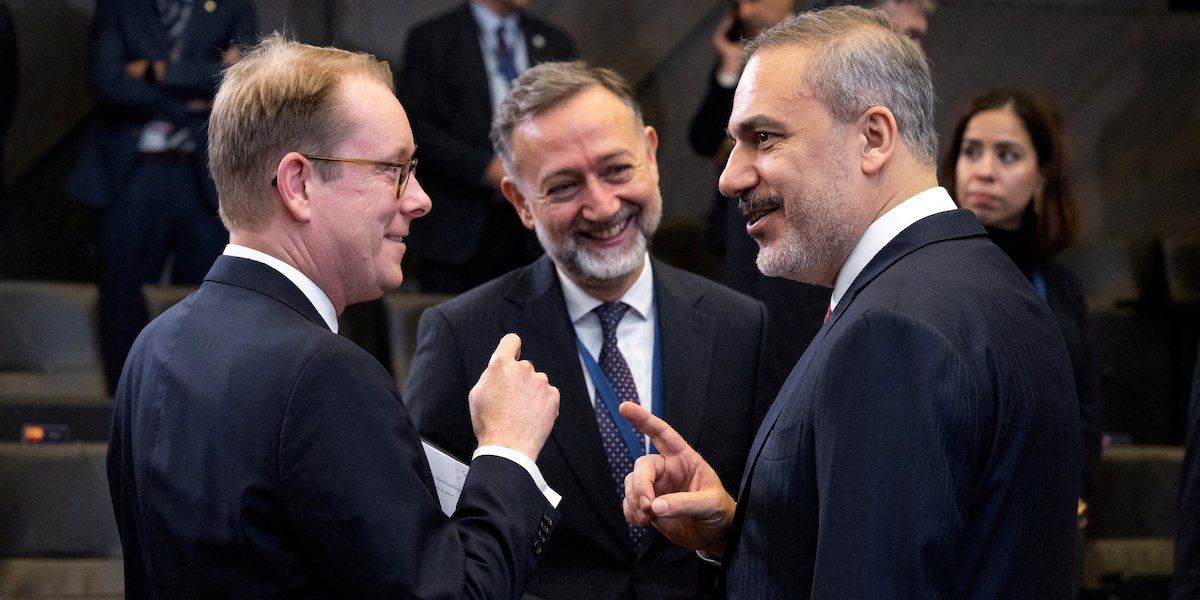Sweden’s top diplomat is optimistic that the nearly year-long delay in his country’s NATO accession caused by Turkey and Hungary will soon be over. Swedish Foreign Minister Tobias Billstrom says that Turkey could approve Sweden’s NATO membership “within weeks,” and he expects Budapest to follow Ankara’s lead.
Billstrom met this week with his Turkish counterpart and spoke with Hungary’s foreign minister. “We expect white smoke from Budapest the moment there’s white smoke from Ankara,” he said, using the metaphor for conclaves signaling they’ve selected a pope.
Sweden and Finland broke long-standing policies of neutrality and moved to join NATO last year after Russia invaded Ukraine. Finland is now a member of the alliance, but Turkey and Hungary have obstructed Sweden’s bid. Expanding NATO requires the approval of all current members.
Turkey initially objected to Sweden’s application over allegations that Stockholm supported Kurdish groups that Ankara considers to be terrorists. Ankara also took issue with an arms embargo that Sweden imposed on Turkey, though that has since been lifted. At the NATO summit in July, Turkish President Recep Tayyip Erdogan reversed course and said he’d support Sweden’s bid after getting assurances that Stockholm would work to address Ankara’s security concerns.
Meanwhile, Hungary's governing Fidesz Party has accused Sweden of spreading “blatant lies” about the state of democracy in the Central European country and has stood in the way of a parliamentary vote on the matter. A senior Fidesz lawmaker recently said there’s “little chance” parliament will vote on Sweden’s NATO bid this year.
Similarly, Hungarian PM Viktor Orban in September said that his country is in “no rush” to ratify Swedish accession. Despite Sweden’s apparent confidence this issue will soon be resolved, it seems the Scandinavian country may have to wait until 2024. But we’ll be watching to see whether Billstrom is right – that Sweden could be added to the alliance in the more immediate future.
